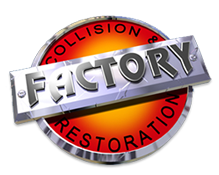
How much water is too much water?
Generally, if the bottom of the vehicle is splashed, it’s okay. But, when the vehicle is submerged in water deeper than half the height of the tires, it’s time to check for water damage. The lower to the ground your vehicle sits, the more susceptible to water damage it is.
Immediately following submersion…
The best way to remove your vehicle from the water is to tow it – avoid starting a wet or water damaged vehicle.
First, check around the tires for any debris that may be lodged in the wheel well and could damage the vehicle during towing.
Your vehicle is likely repairable if the water didn’t reach the bottom of the doors. If the water reached the bottom of the dashboard many insurance companies will consider it totaled.
Once you’ve removed it from the water…
Vehicles, especially modern vehicles, are equipped with an electrical system, computers, filters, and other systems that may or may not be closed off to water in a flood.
● Check fluids – If you notice that the oil or other fluids are at noticeably higher levels than normal, or if there is water obviously in the container or system, it will need to be completely drained and replaced.
● Check filters – Your vehicle has filters for a reason, but things like the air and oil filter won’t filter out water, or work correctly if they’re wet.
● Check the electrical system – If the engine looks okay to start, start with checking lights, the stereo, windows, and air conditioning. If anything is working incorrectly, there may be electrical damage, which could be dangerous.
● Start drying the interior. – Mold can grow quickly on the interior of a vehicle, so let it air out, and if necessary, get a wet-vac or hot air dryer to remove moisture.
Does my insurance cover flood damage?
Flood damage is usually covered if you have comprehensive coverage on your car, but it’s not covered under collision damage. Depending on the policy you have, it may or may not be covered.

Recent Comments